Excited to see your baby’s first little tooth popping through the gum? Well, if you think that was cute, wait until the rest make their way out!
All babies are different and tend to cut their teeth at different times. However, most babies have their first tooth erupt before they turn a year old. Sometimes, pain and discomfort may accompany teething and give babies and parents a tough time. You may be anxious to do everything you can to soothe a teething baby. Let’s look at some helpful tips to manage the teething days of your baby.
When do babies start teething?
Although the timing of tooth eruption may vary, the process typically begins when your baby is six to 10 months old. The usual order of tooth eruption is as follows:- The two lower central incisors (lower front teeth) are usually the first to erupt at six to 10 months of age, followed by the upper two at about eight to 12 months.
- The upper and lower lateral incisors (on either side of the central incisors) appear next at around nine to 16 months.
- The first upper and lower molars (flat-surfaced teeth at the back) erupt between 13–19 months.
- The upper and lower canines (pointy teeth) follow when the baby is about 16–23 months of age.
- The second upper and lower molars appear last, between 23–33 months.
By the age of three years, most children have all 20 teeth.
What are some baby teething symptoms?
Every baby is unique; some may have no signs of teething, while others may show some of the teething symptoms listed below:- Irritability: Your baby may become fussy and cling to you more than usual. They may cry and whine more as the teeth poke through. Some children may show symptoms such as ear pulling or rubbing and wakefulness.
- Excess salivation (drooling): It begins sometime before the actual teething process begins.
- Swelling of gums: Gums become painful, red, and swollen.
- Reduced appetite: Due to inflamed gums, babies may refuse to eat.
- Chewing: Babies will try to gnaw and chew on anything and everything around them.
- Rashes: Some babies may have facial rashes.
Are there any side effects of teething?
Most babies will show mild symptoms of teething. While some babies may have a fever while they are teething, it may not be associated with teething. Babies in this age group are prone to infections because they chew on everything, and their immunity has not yet developed fully. Consult your pediatrician if these are your baby’s teething symptoms:- Fever over 100.4°F
- Vomiting
- Loose stools
- Cough
- A rash over the body
What are the home remedies for teething babies?
Try the following baby teething remedies to soothe a teething baby:- Cold cloth: Chill a clean, damp cloth in the fridge. Use the cold fabric to gently rub your baby’s gums or offer it to your little one to chew on.
- Massage: Lightly massage your baby’s gums with clean fingers.
- Teething rings: Let your baby gnaw on a teething ring that has been cooled in the fridge. Never freeze teething rings; they may damage the little one’s gums when frozen. The teething ring should not be tied around your baby’s neck, as it may pose a choking hazard. Choose rubber teething rings rather than liquid-filled or plastic rings that can break.
- Solid foods: If your baby eats solid foods, give them healthy things to gnaw on, such as a cold piece of carrot or apple. Do not leave the baby alone while he/she is eating. Teething biscuits may not be a great choice because they usually contain sugar and are not very nourishing
- Clean the drool: Use a soft cloth to wipe off the drool to prevent a rash.
Do not use teething gels, herbal remedies, or over-the-counter medicines without your pediatrician’s approval. If your baby is very cranky, ask your doctor before you give them any medicine for pain relief.
When should I see a doctor?
If your baby has a fever or any other worrying symptoms, take him/her to a pediatrician to check if the problem is something other than teething.As soon as the first tooth cuts through, schedule an appointment with a dentist. They will ensure that your baby’s teeth are healthy and advise you on taking care of your baby’s teeth. Talk to your doctor if your baby hasn’t cut a tooth by the time he/she is a year old.
How often should I brush my baby’s teeth, and what should I use to brush them?
You should brush your baby’s teeth twice daily as soon as the first tooth appears. Take a grain-sized quantity of fluoride-containing toothpaste on a baby toothbrush to brush the teeth. It is necessary to monitor your kid while brushing until he/she turns seven or eight years old.Teething is a normal process that may cause some pain, discomfort, and irritability. You can comfort your baby with the best non-toxic baby teethers and the simple remedies discussed above. Seek your pediatrician’s advice to make the challenging teething days easier for both of you.




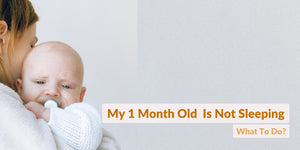

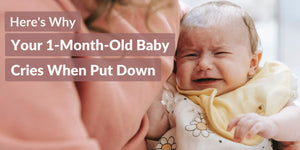
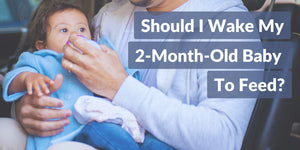
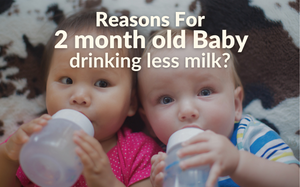
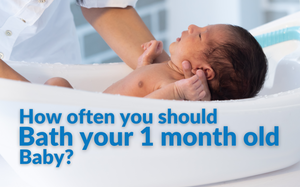
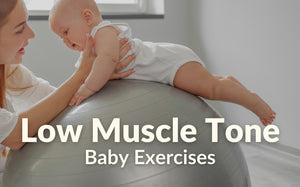
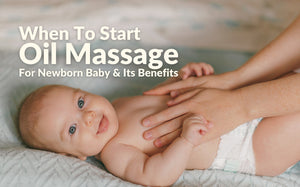

LEAVE A COMMENT